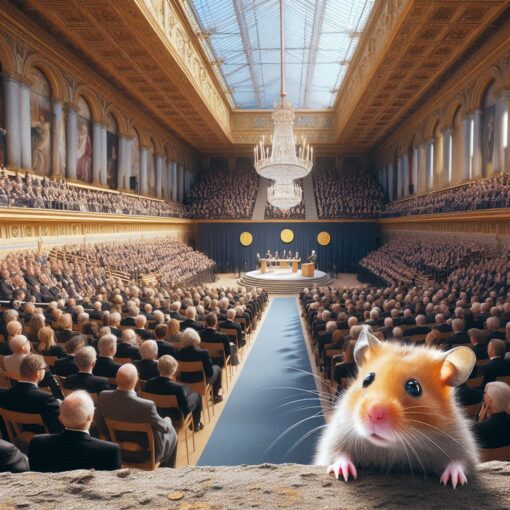The National Center for Science Education (“www.ncseweb.org”:http://www.ncseweb.org) is doing a nice job of tracking the case in Dover, PA, brought by parents against a schoolboard hell-bent on watering down the science curriculum. This week, the defense presents its case. Here, the defense is the school board, which tried to inject into the public education system doubt about a vetted scientific theory in order to advance a religious agenda. Science should never tell religion what to do (proof denies faith, after all), and religion should keep its hands out of science (nowhere is science actually mentioned in the Bible, for instance). Science and religion are orthonormal eigenvectors in the Hilbert space of human life. It’s not the honorable and learned theologians I worry about; it’s average people who’ve been misled by fervent evangelism and robbed of a proper education who think their doing service to society, when really they are destroying it.
As a person in the academic world, I share in a collective blame on that last one. But I try, in my own way (outreach, visits to Washington, public lectures) to stem the loss of knowledge in this country. Dover, PA, is another indicator of the sickly yellow under the peeling prussian blue in this, our home America.
Sigh. “Michael Behe testified for the defense today”:http://ydr.com/story/doverbiology/90008/. He tried to explain how intelligent design is really a legitimate scientific theory (which he failed to do on WPR given a whole hour). To back up his belief in ID, he stated that it meets all the criteria of a scientific theory, “because it relies on empirical, observable facts and logical inferences.”
I feel really, really bad for Dr. Behe. When he took science class, when he was just a wee Behe, somebody really lied to him. Or, maybe, somebody just never explained the definition of scientific theory for him. Let’s consider one high school teacher’s quite excellent definiton. According to one of Connecticut’s finest science teachers (teacher of the year, just a few years ago), a scientific theory is the result of the following chain: **observation->hypothesis->experiment->theory-> (repeat)**. If the theory stands up to this cycle repeatedly, science elevates it to a law.
Just to give Dr. Behe the benefit of the doubt, let’s conduct a dictionary check. Dictionary.com, which is a frontend for several dictionaries, tells us “this about the scientific method”:http://dictionary.reference.com/search?q=scientific+method,
The principles and empirical processes of discovery and demonstration considered characteristic of or necessary for scientific investigation, generally involving the observation of phenomena, the formulation of a hypothesis concerning the phenomena, experimentation to demonstrate the truth or falseness of the hypothesis, and a conclusion that validates or modifies the hypothesis.
By inference, a principle that Behe claims to use in his justification of ID as a theory, a *scientific theory* is a theory which is the result of the cycle involved in the scientific method. That is, by applying the method, a theory results at the end.
Here, I feel, we arrive at the crux of the argument: Behe’s definition appears to fall far short of either the best public educators, or the dictionary (the time-tested repository of human knowledge). He claims that ID is a scientific theory because it relies on facts and inferences. But that’s not what a scientific theory is. A scientific theory is a hypothesis – which is the concept based on facts (observations) and inferences (predictions) – that is passed through the filter of experiment. Experiment and its results verify or reject the hypothesis, and force a rethinking of the hypothesis or its total abandonment.
Intelligent design has never been subjected to an experimental filter. It is therefore a hypothesis. There are many hypotheses in the world, and we don’t teach them in the science classroom (string theory is optional, not required, at all major universities). Evolution, on the other hand, has withstood a century of experimental evidence. As a result, it is only made stronger. Intelligent design, as a hypothesis, is weak by design. How ironic.
Sorry, Dr. Behe. A degree does not make you the designator of what is science and what is not science. Unfortunately, your amateur confusion of a hypothesis with a scientific theory belies your lack of rigorous understanding of the process of science. Here I collapse into my religious eigenstate, and pray that not too many students pas through your classroom each year.




